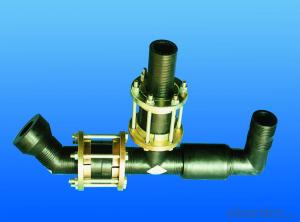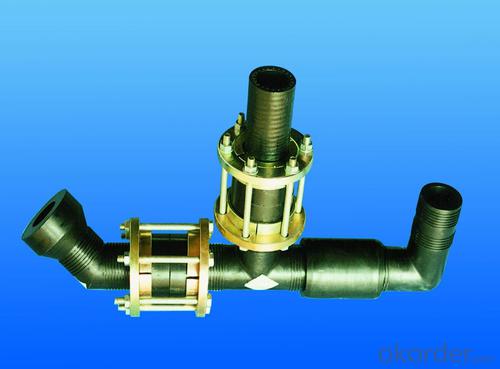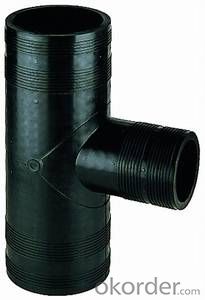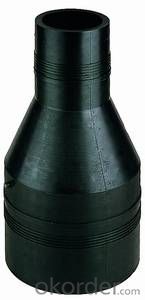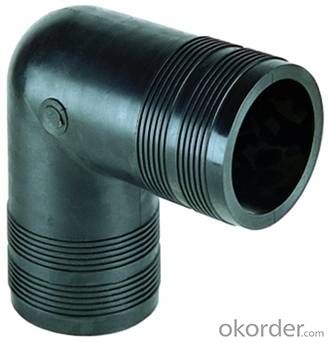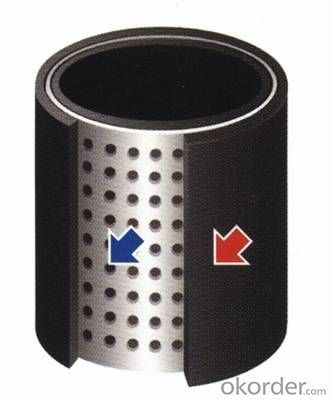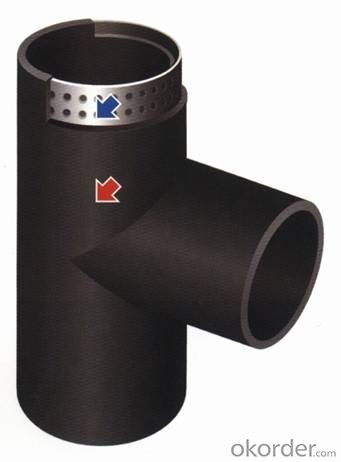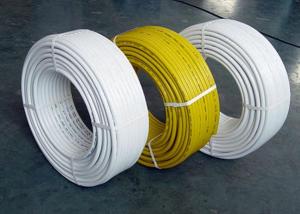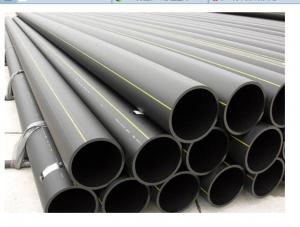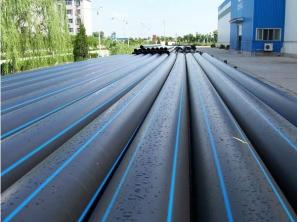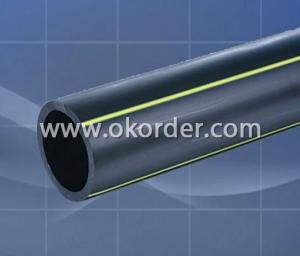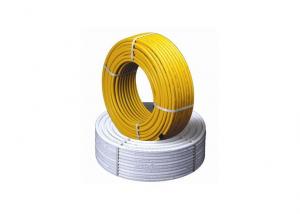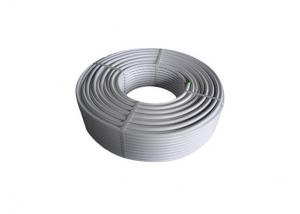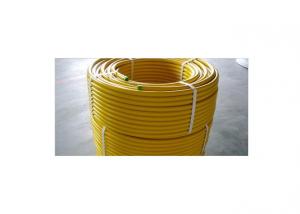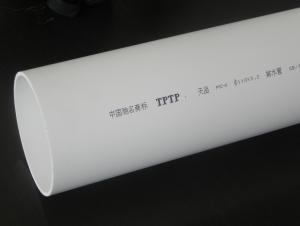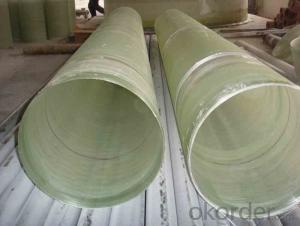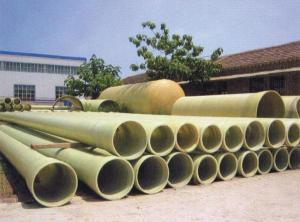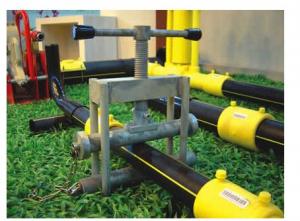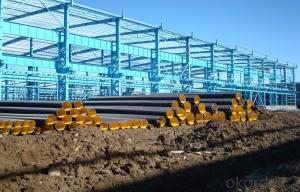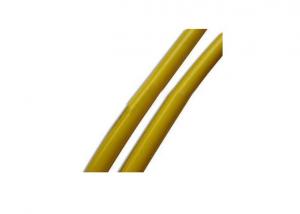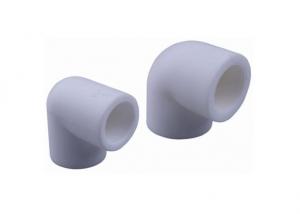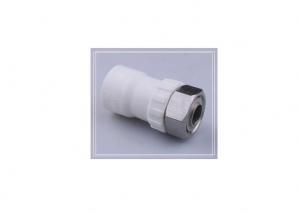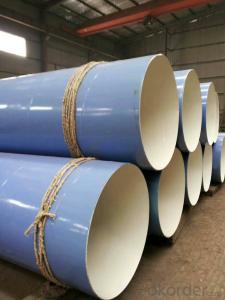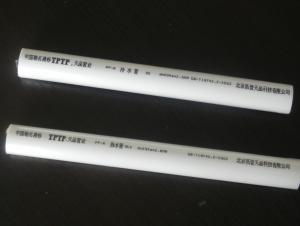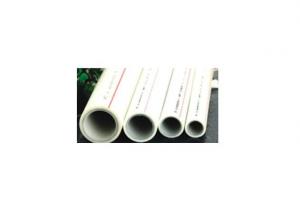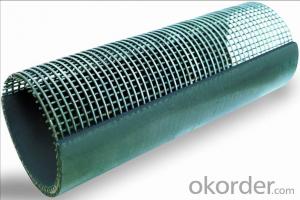Composite Pipes for Steel Mesh Reinforced PE Pipe Fittings
OKorder Service Pledge
OKorder Financial Service
You Might Also Like
There is steel platereinforced structure inside the pipe fitting, and the steel plate is surroundedby the HDPE the structure is very solid and also obtains excellent anti-corrosionand abrasion resistant feature, it can guaranty the steady and life span of thewhole piping system.
The Steel Reinforced PE fittings is a combination of a steel sheet which works as the reinforcing part and HDPE which works as the stuffing material injected on both surfaces of the steel sheet.
The end of Steel Reinforced PE pipe will be constructed differently for different connections.
1) At a flange connection end, there is a flange head for the connection. You need flange connection kits, which is ordered separately.
2) In an electro-fusion end, the outside surface is pre-treated for a proper electro-fusion. You need a electro-fusion Coupler, which is ordered separately. Electro-fusion connection can only be done by using the Huachuang brand Electro-fusion Bar-code Scanning Welding Machine.
So, there are three kinds of fitting connection options for each pipeline:
•DD Option: Both ends are Electro-fusion connection ends
•FF Option: Both ends are Flange connection ends
•DF Option: One end is an Electro-fusion connection end and another end is a Flange connection end.
- Q: Plastic composite pipe plastic composite pipe, which is suitable for hot water use
- As for the kind of material suitable for conveying hot water, depends on the coating of plastic materials, hot water transport, and now use more PB pipe, that is, polybutylene pipe, the maximum temperature of up to 110 degrees.
- Q: Can composite pipes be used for slurry transportation?
- Yes, composite pipes can be used for slurry transportation. Composite pipes are known for their excellent resistance to corrosion and abrasion, making them suitable for transporting slurry, which is a mixture of solid particles suspended in a liquid. The composite materials used in these pipes offer high strength and durability, ensuring efficient and reliable transportation of slurry without any degradation or leakage.
- Q: Can composite pipes be used for HVAC systems?
- Yes, composite pipes can be used for HVAC systems. Composite pipes are made of different materials, such as fiberglass, PVC, or metal, which make them suitable for various applications. They offer advantages like corrosion resistance, thermal insulation, and durability, making them a viable option for HVAC installations.
- Q: Can composite pipes be used for chemical waste systems?
- Yes, composite pipes can be used for chemical waste systems. Composite pipes are made from a combination of materials such as fiberglass, resin, and other reinforcing materials. These pipes offer excellent chemical resistance, durability, and corrosion resistance, making them suitable for handling and transporting chemical waste safely. Additionally, composite pipes are lightweight, easy to install, and can withstand high temperatures and pressures, making them a reliable choice for chemical waste systems.
- Q: Who knows how the double IGBT of the electromagnetic oven forms a composite tube?
- IGBT is a composite tube consisting of a SHM (bipolar power high speed switching tube) and a MOS (insulated gate type FET), and the connection is similar to that of Darlington transistors. Among them, SHM is a current controlled transistor, and MOS is a voltage controlled transistor, so it is called full control.
- Q: Are composite pipes suitable for chemical refineries?
- Yes, composite pipes are suitable for chemical refineries. They are highly resistant to corrosion, have excellent chemical resistance, and can withstand the high temperatures and pressures involved in the refining process. Additionally, composite pipes offer lighter weight, easier installation, lower maintenance costs, and longer service life compared to traditional piping materials.
- Q: Can composite pipes be used for hydrocarbon transportation?
- Yes, composite pipes can be used for hydrocarbon transportation. Composite pipes, made of reinforced materials such as fiberglass or carbon fiber, offer excellent resistance to corrosion, high strength, and durability. They are capable of handling the pressures and temperatures required for hydrocarbon transportation, making them a reliable choice for this application. Additionally, composite pipes are lightweight and easy to install, reducing transportation costs and improving efficiency.
- Q: Do composite pipes require special maintenance?
- Yes, composite pipes do require special maintenance. They should be regularly inspected for any signs of wear, corrosion, or damage. Additionally, composite pipes may need to be cleaned using specific methods and materials to prevent buildup or clogging. It is important to follow the manufacturer's guidelines for maintenance to ensure the longevity and performance of composite pipes.
- Q: Can composite pipes be used for sewage systems?
- Yes, composite pipes can be used for sewage systems. Composite pipes are made with materials that are resistant to corrosion and have high strength, making them suitable for carrying wastewater and sewage. Additionally, composite pipes have smooth inner surfaces, which prevent clogging and allow for efficient flow of sewage.
- Q: Are composite pipes suitable for agricultural irrigation?
- Yes, composite pipes are suitable for agricultural irrigation. Composite pipes, made from materials like fiberglass or carbon fiber, offer several advantages such as high strength, corrosion resistance, and durability. These properties make them ideal for withstanding harsh agricultural environments, including exposure to chemicals, sunlight, and varying temperatures. Composite pipes also have smooth inner surfaces, reducing friction and improving water flow efficiency. Additionally, their lightweight nature makes installation and maintenance easier, reducing labor and costs. Overall, composite pipes are a reliable and long-lasting solution for agricultural irrigation systems.
Send your message to us
Composite Pipes for Steel Mesh Reinforced PE Pipe Fittings
OKorder Service Pledge
OKorder Financial Service
Similar products
Hot products
Hot Searches
